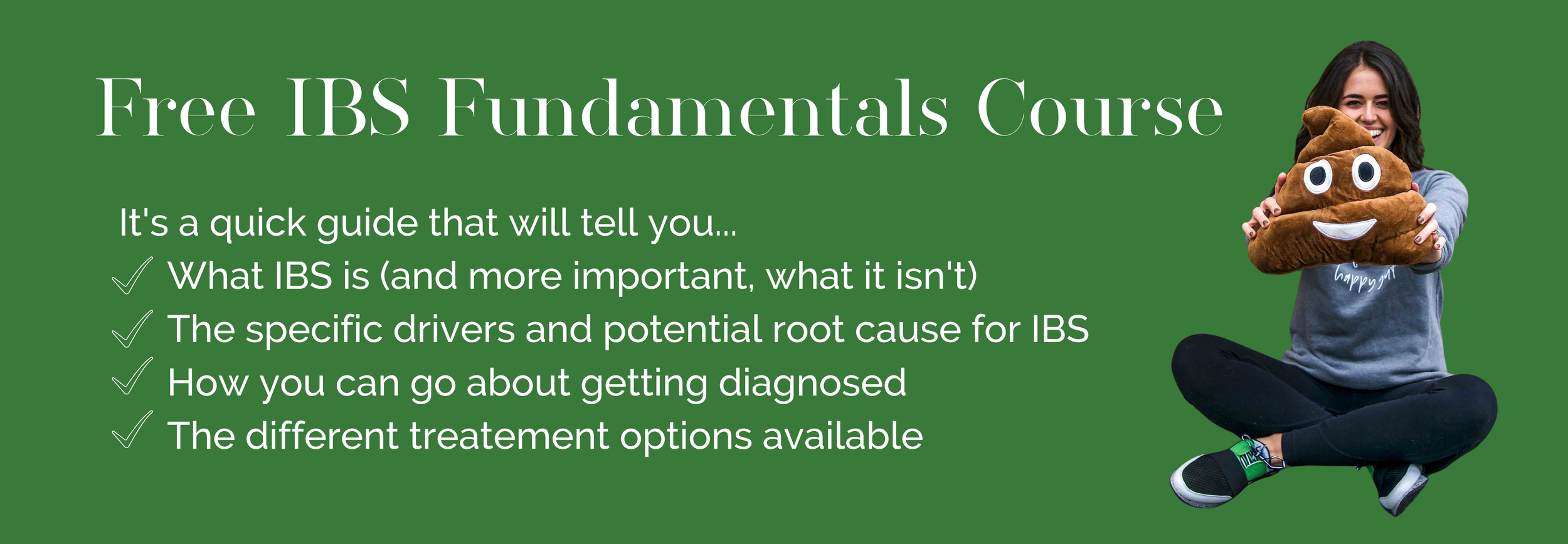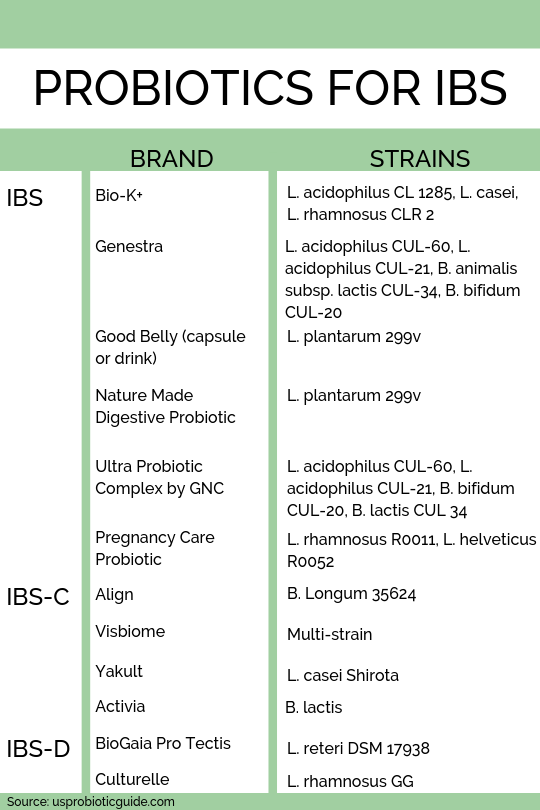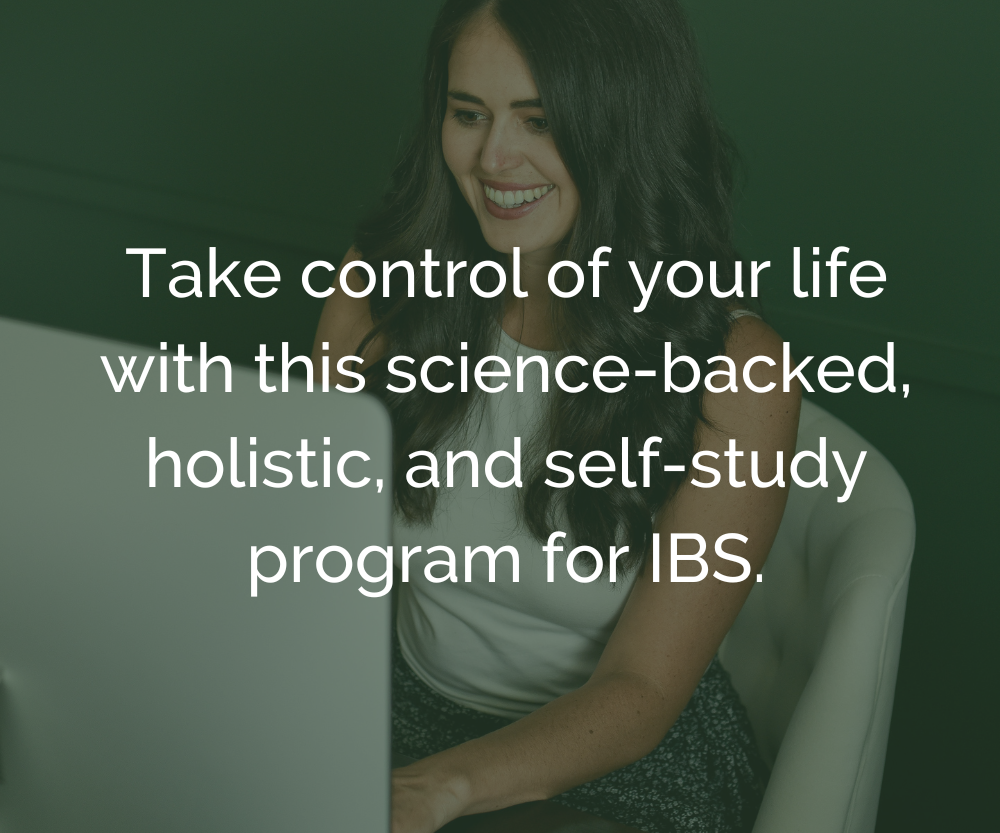Probiotics & IBS
Probiotics are all the rage in our culture right now and have made their way to the top of the supplement industry. That’s no surprise, because as we gain knowledge about the connection of our gut microbiome to our overall health, probiotic use is becoming a common recommendation from medical professionals, as well as other health gurus. If you have IBS, you have probably heard that you should be taking a probiotic, but do you know why? And do you know what kind?
Probiotics are defined as “live microorganisms that confer positive effects on the host after oral administration.” More simply put, these are live bacteria that can improve our health when we eat them. Probiotics can be found in the diet, through fermented foods like yogurt and kimchi, as well as in supplemental form, which is the major money-maker for this movement. While we do know probiotics are great, there are many different types and each individual bacteria has a unique effect on the body, so different bacteria may be useful for different needs.
So, what DO we know?
Currently, we know that probiotics may do the following:
Help protect the gut from pathogenic microbes via their antimicrobial properties
Boost the intestinal tight junctions to stabilize permeability (ie more protection from the harmful pathogens entering the body)
Stimulate intestinal cells to produce mucus that improves intestinal barrier function (ie security guards), normalizes bowel movements, and reduces pain.
It’s hard to extrapolate concrete evidence for each of these possible effects due to the diversity of bacteria available in probiotics and to the unique makeup of each individual’s microbiome. As we learn more, our recommendations can become more specific and targeted. We used to believe that the probiotics we took actually took up residence in the gut. However, we now know that the benefits we see are likely due to the metabolism of the probiotics as they pass through. Again, there’s more to learn and understand before we all fully jump on the probiotic train.
What’s your poop personality? Find out here!
What do know is that our microbes are responsible for the roles listed above, so if we support the microbes we have, then we will see improvement in each of these functions. Some of the best ways we can support the health of our microbes is to eat a diverse amount of fiber from plant sources, include prebiotics in the diet, decrease stress, and exercise regularly. Bonus points if we can get outside a few times a day.
There are many strains of bacteria and specific probiotics that have at least one solid study to support a positive effect for those suffering with IBS. Note that the specific strain of bacteria, as well as dose matters when it comes to a probiotic, and refrigeration does not have to be required for a valid product. Also, note that there are some studies that show a decrease in effectiveness with long-term use. This means that, currently, probiotics are not a single solution to manage your IBS. They can be included, alongside individualized diet and lifestyle interventions given by a registered dietitian, to create a well-rounded plan. I help my clients develop a plan like this in my signature IBS Management Program, as well as my group program, the MASTER Method.
With any supplements, I can’t emphasize enough that they aren’t the single cure for all IBS symptoms. It can be helpful to figure out your dietary and lifestyle changes before introducing a probiotic, so that you can actually monitor the changes you see when you start one. Also, if your symptoms improve with dietary and lifestyle changes, a probiotic may not be needed.
Here is a chart of specific brands and the strains they contain that have been shown (in at least one valid study) to have a positive effect on IBS, constipation, and/or diarrhea. Do not take this individualized medical advice. It’s important to always consult with your doctor or dietitian to determine which supplements (if any) may be best for you! Also, remember that the supplement industry is not regulated, so be intentional with choosing trusted brands like those below. Others may claim to contain the same strains of bacteria, but unless they conduct studies to prove their probiotic is what they say it is, it’s hard to know for sure what you’re getting.
Are you frustrated with your IBS symptoms? Do you desire to be confident in your food choices? Do you want to have a healthier relationship with your body and diet? Are you ready to take control of your IBS?




